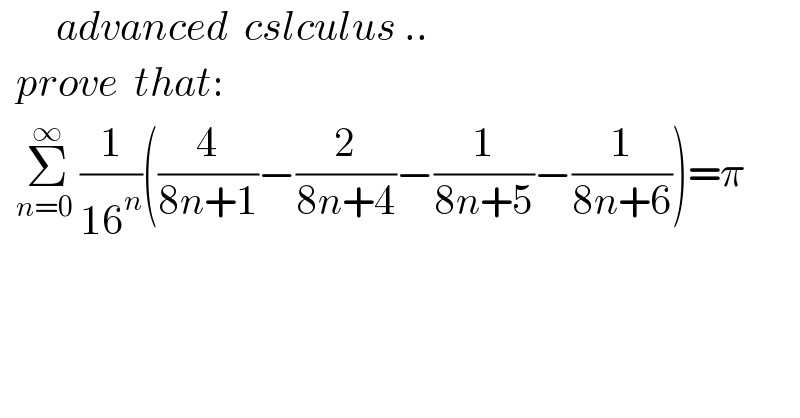Question Number 131711 by mnjuly1970 last updated on 07/Feb/21

$$\:\:\:\:\:\:\:{advanced}\:\:{cslculus}\:.. \\ $$$$\:\:{prove}\:\:{that}: \\ $$$$\:\:\underset{{n}=\mathrm{0}\:} {\overset{\infty} {\sum}}\frac{\mathrm{1}}{\mathrm{16}^{{n}} }\left(\frac{\mathrm{4}}{\mathrm{8}{n}+\mathrm{1}}−\frac{\mathrm{2}}{\mathrm{8}{n}+\mathrm{4}}−\frac{\mathrm{1}}{\mathrm{8}{n}+\mathrm{5}}−\frac{\mathrm{1}}{\mathrm{8}{n}+\mathrm{6}}\right)=\pi \\ $$
Commented by JDamian last updated on 07/Feb/21

$${Please},\:{how}\:{many}\:{indices}\:{are}\:{there}?\:{k}?\:{n}? \\ $$
